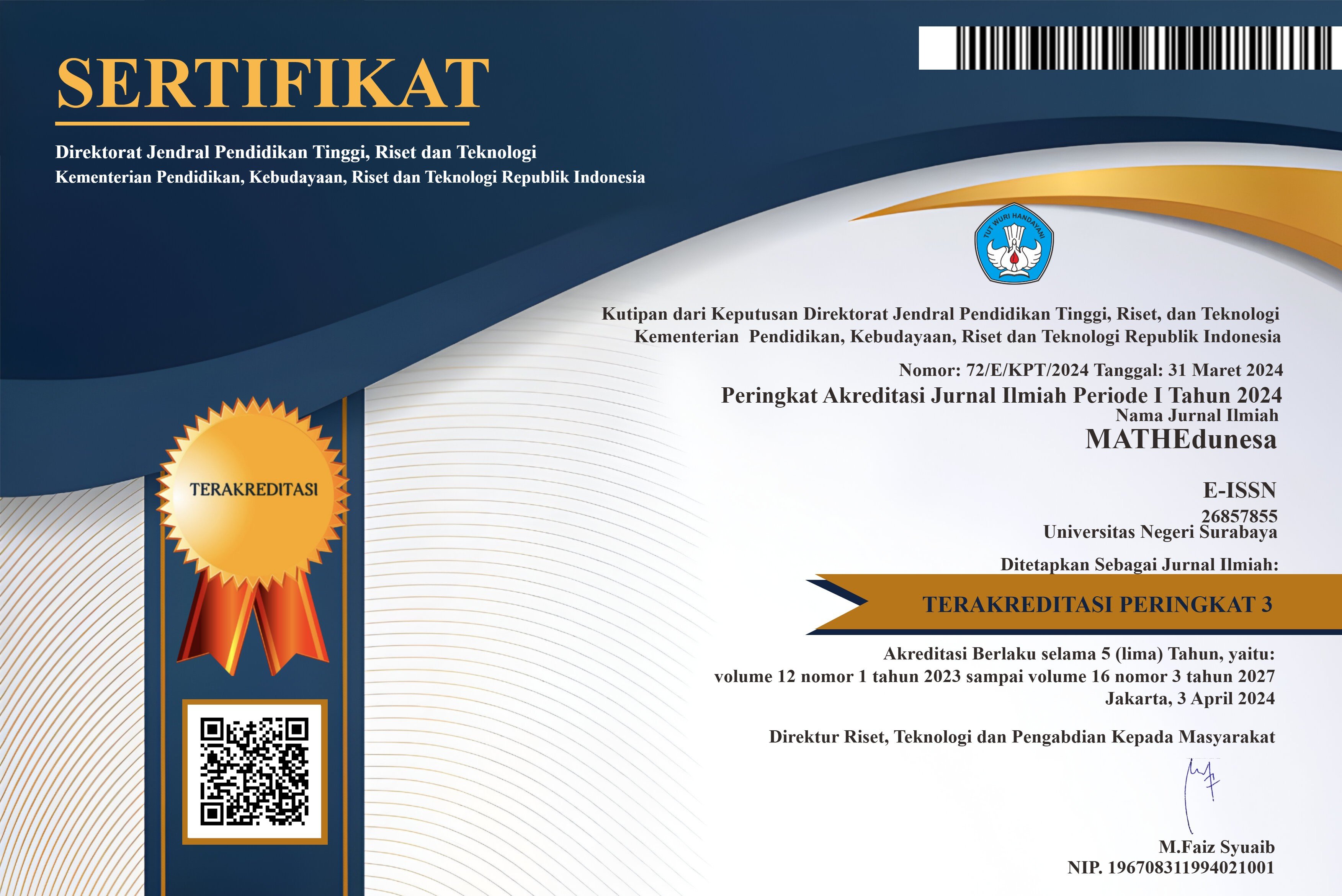Kemampuan Pemecahan Masalah Kolaboratif Siswa SMP dalam Menyelesaikan Masalah Kontekstual Persamaan Linear Satu Variabel
DOI:
https://doi.org/10.26740/mathedunesa.v13n3.p674-693Abstract
Collaborative problem solving is an important skill to be mastered in education and work. Collaborative problem solving helps reduce the failure of individual problem solving. This type of research is a descriptive qualitative research that aims to describe the collaborative problem solving ability of grade 7 junior high school students in solving contextual problems of linear equations of one variable. The subjects in this study were six students who were divided into two heterogeneous groups, namely: a group of students consisting of one student each with high, medium and low mathematics abilities. The other group consisted of 2 students with low math ability and 1 student with high math ability.
The results showed that the high, medium, and low math ability groups were more successful in solving the given problems than the low and high math ability groups. Both heterogeneous groups designed and implemented problem-solving activities fairly well. But for more complex problems, both groups could not solve well. Students with high mathematical abilities in both groups dominated and contributed more to the solution. Medium ability students are encouraged to be actively involved and contribute to problem solving. While students with low ability are more likely to be passive but one of the low ability students in the high and low groups is quite encouraged and contributes enough in problem solving.
Downloads
Downloads
Published
Issue
Section
 Abstract views: 109
,
Abstract views: 109
, PDF Downloads: 176
PDF Downloads: 176




